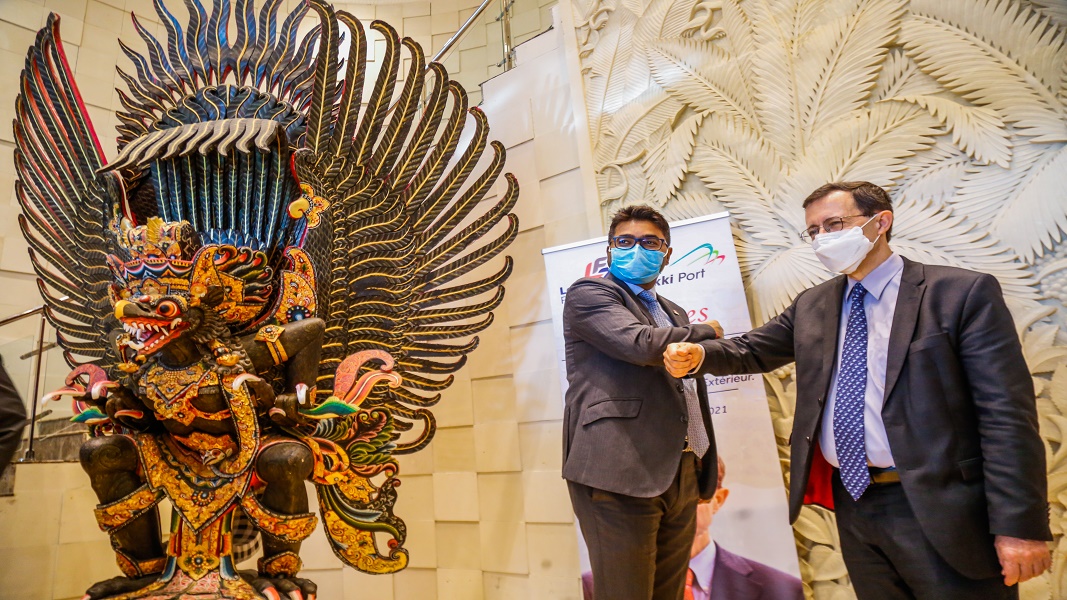Speaking during the visit, the Ambassador of France in Nigeria explained that the aim of the visit of the Conseillers du Commerce Exterieur to LFZ was to discover the opportunities in the Lagos Free Zone and the Lekki Port project, expected to have a huge positive impact on businesses in Nigeria.
Pasquier commended Tolaram Group, the promoter of the zone, for the foresight of integration of Lekki Port into the master plan of the LFZ, which would serve as the gateway for import and export from the zone thereby giving businesses in the zone a competitive edge.
The Ambassador also commended the LFZ for its Master Plan for the zone, which includes world-class infrastructure that is in line with its vision to be the preferred industrial hub and investment destination in West Africa.
“I am impressed by the huge size of the Lagos Free Zone project. We are very happy that the French companies will be deeply involved in this Lagos Free Zone project. It is really impressive to see how ambitious this project is. The French Minister was in Nigeria yesterday and I explained to him that Nigeria is a country where we can have big projects. For us, this project means big opportunities and that explains why we need to be here. We are happy to be here and work with Tolaram Group”, he said.
It is noteworthy to mention that the first French company to be established in the Lagos Free Zone is the terminal operations arm of CMA – CGM which has established a subsidiary within the Lagos Free Zone and is the appointed operator for the container terminal operations scheduled to commence at Lekki Port next year.
In his remarks, the CEO, LFZ, Dinesh Rathi, assured the Ambassador of France and the Conseillers du Commerce Exterieur that the zone remains the best destination for investment in Nigeria and the West African sub-region given the seamless integration with Lekki Port and the world-class infrastructure provided by Lagos Free Zone.
Explaining the configuration of the zone, Rathi disclosed that the clustering was planned in line with the international best practices of Work, Live and Play. He stated that the land-use plan of the Lagos Free Zone allocates 70 percent area towards industrial developments, 20 percent towards logistics and support services while the real estate will cover the remaining 10 percent.
He also stated that the LFZ has simplified the process of business entry and operation in the zone in line with the Federal Government of Nigeria’s Ease of Doing Business policy.
“We have made it very easy for the business to berth and take off at zone by making our process less cumbersome and friendly, we are open for business 24/7 and willing to help investors to settle in very fast,” he said.



